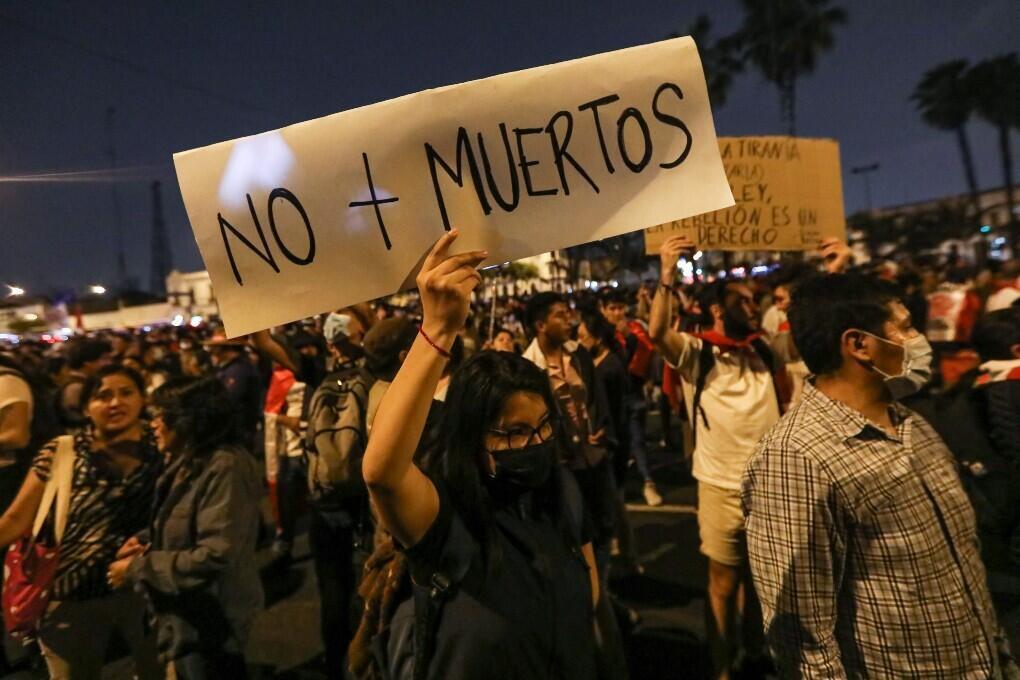First modification:
Peru’s Supreme Court upheld Thursday the decision to keep former President Pedro Castillo in pretrial detention for 18 months while he is investigated for rebellion. In early December, Castillo was removed by legislators and later arrested for attempting to illegally dissolve Congress.
Pedro Castillo will continue to be detained. Despite the appeal filed by his defense, the Supreme Court ratified on Thursday, December 29, the 18-month pretrial detention that the former Peruvian president received on December 15, a week after he was dismissed for trying to dissolve Congress and govern by decree.
Permanent Criminal Chamber of the Supreme Court #ratifies resolution that ordered 18 months of preventive detention against former president #PedroCastilloinvestigated for the crime of rebellion (alternatively, conspiracy to rebellion) against the State. pic.twitter.com/jZCUjzgytq
– Judicial Power Peru (@Poder_Judicial_) December 29, 2022
In this way, it confirmed the decision made in the first instance by Supreme Judge Juan Carlos Checkley, who at that time indicated that he had found “well-founded elements of conviction” of the alleged commission of the crimes of rebellion, conspiracy, abuse of authority and Serious disturbance of public peace.
Deputy Supreme Prosecutor Silvia Sack Ramos explained that the Public Ministry requested that Castillo continue in prison due to the seriousness of the coup attempt and the danger of flight.
When ordering preventive detention against Castillo, Judge Checkley had already indicated on December 15 that he took the measure because the ex-governor faces the possibility of receiving at least four years in prison and there was a danger of flight, since he had tried to go to the Embassy of Mexico in Peru to request asylum.
“I have never committed a crime of rebellion”
On Wednesday, in a virtual hearing, Castillo’s lawyer, Wilfredo Robles, accused the Prosecutor’s Office of showing “an eagerness to accumulate crimes” against the former president and said that there are insufficient grounds to maintain preventive detention.
Robles argued that Castillo did not call to rise up in arms on December 7, and also alleged that he has work ties, since he must return to his position as a teacher in a rural school in the north of the country.
Castillo’s lawyer considered that there is no flight risk and wondered if his client has to serve pretrial detention because of the support given to him by other presidents, in reference to the predisposition that the Government of Mexico has expressed to grant him political asylum.
Pedro Castillo also intervened in the hearing. “I have never committed a crime of rebellion. I have not taken up arms and I have not called anyone to take up arms either, but I must say that the one who took up arms to end the lives of more than 30 Peruvians is the current Government “, Held.
Investigations into deaths during protests

For its part, the Peruvian Prosecutor’s Office announced this Thursday that it had initiated seven preliminary investigations into the deaths of protesters during the anti-government protests unleashed in the country after the failed self-coup attempt by Pedro Castillo, and his replacement by Dina Boluarte.
?#Urgent:
The Public Ministry reports that, to date, it has initiated 7 preliminary investigations into the deaths of citizens that occurred during protests at the national level. pic.twitter.com/YW0RsNtkAK– Public Ministry (@FiscaliaPeru) December 29, 2022
“Likewise, the initiation of investigations was ordered, against those who are responsible, for the riots registered, in various regions, which attempted against the life and rights of people, as well as public and private property,” concluded the Prosecutor’s Office
An estimated 22 people have been killed in clashes during the protests and another six have died in traffic accidents related to roadblocks, according to government data. Five people in this balance were minors.
Human rights groups have accused authorities of using firearms against protesters and dropping smoke bombs from helicopters. The army claims that the protesters have used homemade weapons and explosives.

On Thursday, Peruvian President Dina Boluarte said she would provide prosecutors with all the necessary resources so they can investigate these deaths.
“The police and the army took to the streets to protect the lives and calm the fears of the 33 million people who live in Peru,” Boluarte said Thursday, but added that the deaths would not go unpunished. “We are not going to allow impunity, they have to be investigated,” said Boluarte.
The protests will be reactivated on January 4 according to the government
The protesters continue to demand the dismissal of Dina Boluarte, the electoral advance, the closure of Congress and the creation of a constituent assembly to reform the Peruvian Constitution promulgated in 1993 during the mandate of Alberto Fujimori.
On Thursday, in this same press conference with members of the foreign press, the Minister of the Interior, Víctor Rojas, said together with Boluarte that he had information that the protests could be revived, particularly in the south, on January 4, after making a break during the Christmas holidays.
He said human rights will be protected if more protests break out. “Nobody wants a repeat of the deaths that occurred in the first round of conflicts,” she said.
With EFE and Reuters











